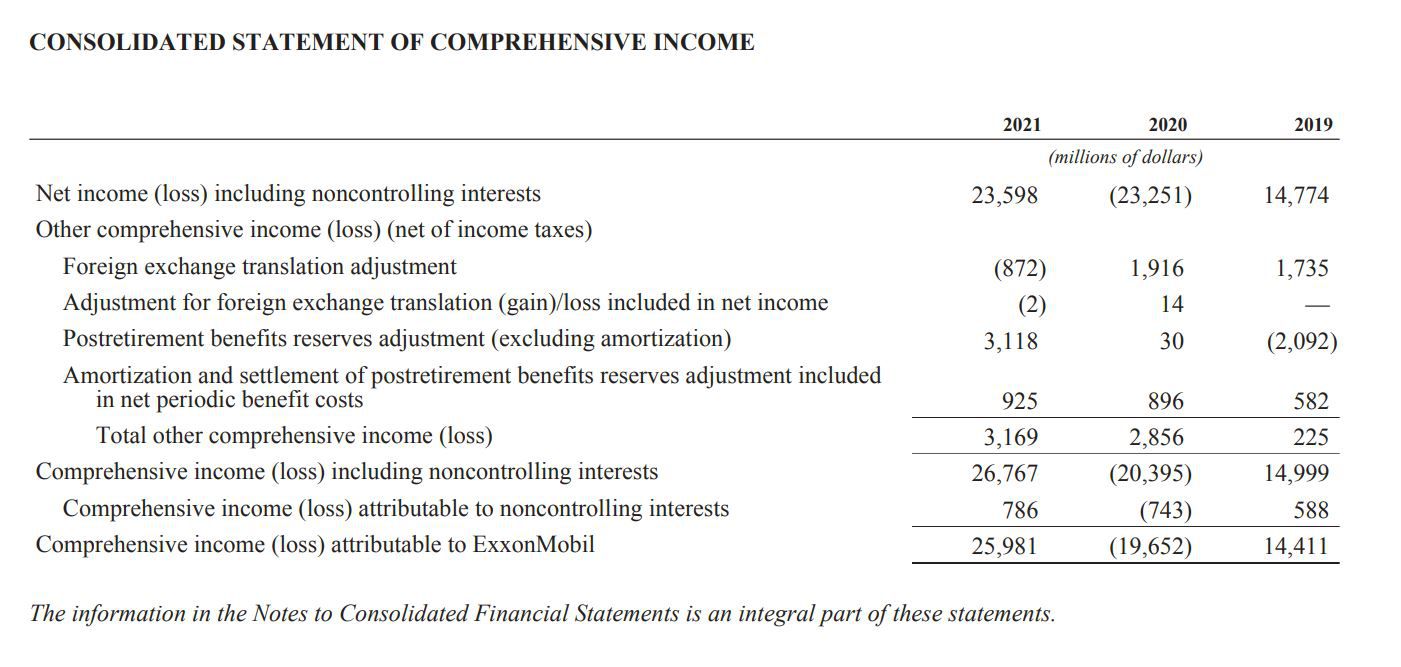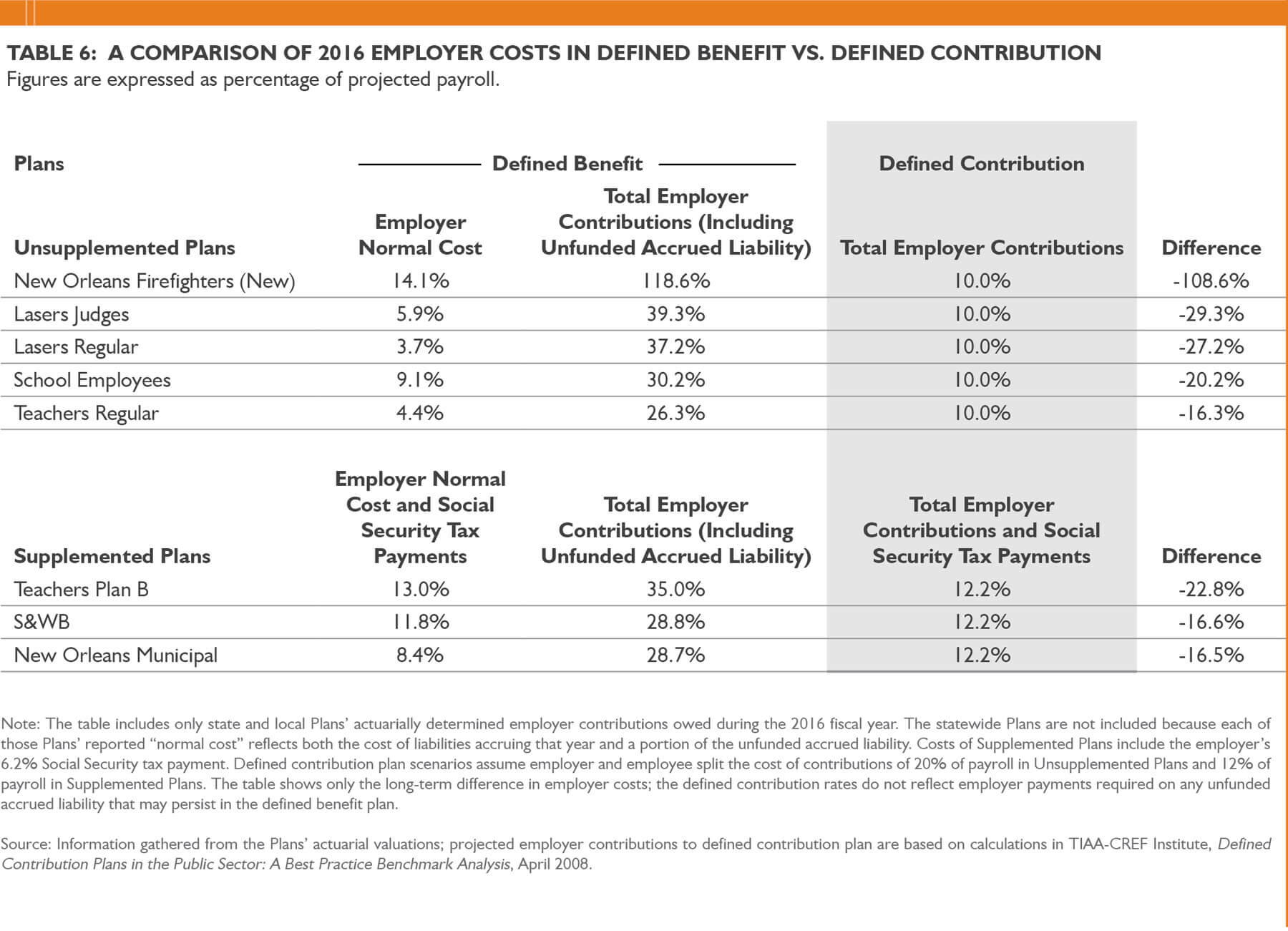Home>Finance>Why Are Companies Required To Buy Insurance For Defined Benefit Plans


Finance
Why Are Companies Required To Buy Insurance For Defined Benefit Plans
Modified: December 29, 2023
Learn why companies need to purchase insurance for their defined benefit plans and how it relates to the world of finance.
(Many of the links in this article redirect to a specific reviewed product. Your purchase of these products through affiliate links helps to generate commission for LiveWell, at no extra cost. Learn more)
Table of Contents
- Introduction
- Understanding Defined Benefit Plans
- The Importance of Insurance for Defined Benefit Plans
- Legal Reasons for Companies to Purchase Insurance for Defined Benefit Plans
- Mitigating Financial Risks in Defined Benefit Plans through Insurance
- Factors to Consider When Buying Insurance for Defined Benefit Plans
- Conclusion
Introduction
Welcome to the world of defined benefit plans, where companies play a crucial role in providing retirement benefits to their employees. In an era where financial security and retirement planning are top concerns for many, these plans offer a valuable opportunity for employees to secure their future.
Defined benefit plans are employer-sponsored retirement plans that promise a predetermined monthly benefit to employees upon their retirement. These plans are in contrast to defined contribution plans, such as 401(k)s, where the benefit is determined by the contributions made and the investment performance.
While defined benefit plans offer a fixed monthly income to retirees, there are inherent risks that companies must carefully manage. One such risk is the volatility and uncertainty associated with the financial markets, which can impact the plan’s ability to meet its obligations. This is where insurance for defined benefit plans comes into play.
Insurance for defined benefit plans acts as a safeguard for both the company and its employees. It provides financial protection in the event that the plan’s assets are insufficient to meet its benefit obligations. By purchasing insurance, companies can mitigate the risks associated with market fluctuations, investment performance, and unexpected events.
Moreover, insurance for defined benefit plans is not just a wise business decision, but it is also legally required in many jurisdictions. Government regulations and pension laws mandate companies to purchase insurance to ensure the security and longevity of the retirement benefits promised to their employees.
Buying insurance for defined benefit plans involves careful consideration and evaluation of various factors, such as the financial stability and reputation of the insurance provider, the cost of premiums, and the terms and conditions of the policy. It is essential for companies to thoroughly assess their insurance options to select the most suitable coverage that aligns with their specific needs and risk tolerance.
In this comprehensive article, we will explore the importance of insurance for defined benefit plans, the legal reasons for companies to purchase insurance, and the strategies for mitigating financial risks through insurance. We will also discuss the key factors that companies should consider when buying insurance for their defined benefit plans. So, let’s delve into the world of insurance for defined benefit plans and unravel its significance for companies and employees alike.
Understanding Defined Benefit Plans
Defined benefit plans are retirement plans offered by employers that guarantee a specific monthly benefit to employees upon their retirement. These plans are designed to provide a stable and predictable income stream throughout the retiree’s lifetime.
Unlike defined contribution plans, where the final benefit is dependent on the contributions made and the investment performance, defined benefit plans offer a predetermined amount based on factors such as the employee’s salary, years of service, and a formula established by the employer.
One of the key advantages of defined benefit plans is that they offer a lifetime income stream, regardless of the length of retirement. This provides employees with a sense of financial security, ensuring that they will receive a regular payment to cover their living expenses during their post-employment years.
Another distinguishing feature of defined benefit plans is that the employer bears the investment risk and is responsible for ensuring that there are sufficient funds to meet the retirement benefits. This means that the employer must carefully manage the plan’s investments to generate the necessary returns and maintain the plan’s solvency.
Although defined benefit plans offer attractive retirement benefits, they also pose financial risks to the sponsoring companies. Companies must project the future liabilities associated with these plans and ensure that they have sufficient assets to meet these obligations. Failure to do so could result in financial strain, legal consequences, and reputational damage for the company.
It is important to note that defined benefit plans have become less common in recent years, with many companies shifting towards defined contribution plans due to the administrative complexities and financial risks associated with the former. However, there are still a significant number of companies that maintain defined benefit plans, particularly in industries where long-term employee loyalty and retention are valued.
Given the potential financial risks and responsibilities associated with defined benefit plans, it becomes imperative for companies to seek ways to protect themselves and their employees from adverse situations. This is where insurance for defined benefit plans plays a pivotal role, providing a safety net against unforeseen circumstances and ensuring the stability of retirement benefits.
The Importance of Insurance for Defined Benefit Plans
Insurance for defined benefit plans holds immense importance for both companies and their employees. It serves as a crucial risk mitigation tool, offering financial protection and ensuring the stability and continuity of retirement benefits.
One of the primary reasons for companies to purchase insurance for their defined benefit plans is to protect against the inherent volatility and uncertainty in the financial markets. The performance of investments can fluctuate, and unexpected events such as economic downturns or market crashes can adversely impact the plan’s assets. By having insurance in place, companies can safeguard against these risks, ensuring the availability of funds to fulfill their pension obligations.
The importance of insurance for defined benefit plans becomes more evident in situations where a company faces financial challenges or goes bankrupt. Without insurance, employees’ retirement benefits may be at risk, as the company may not have sufficient assets to cover the promised payments. Insurance provides a safety net, stepping in to fulfill the benefit obligations and providing employees with the financial security they were promised.
Furthermore, insurance for defined benefit plans helps companies comply with legal requirements and regulations imposed by governmental bodies. Many jurisdictions mandate that companies purchase insurance as a means of protecting the retirement benefits of their employees. Failing to meet these requirements can lead to severe penalties and legal repercussions.
Insurance also benefits employees by offering peace of mind and security in their retirement years. Knowing that their retirement benefits are protected by insurance provides them with a sense of financial stability and confidence. They can rely on the fact that even in the face of market volatility or company financial distress, their pension payments will continue without interruption.
Moreover, insurance for defined benefit plans can also enhance the reputation of a company as an employer. Companies that actively take steps to protect their employees’ retirement benefits through insurance demonstrate their commitment to employee well-being and financial security. This can attract and retain top talent, as employees are likely to value the stable and secure retirement benefits offered by the company.
In summary, insurance for defined benefit plans is of utmost importance for companies and their employees. It provides protection against market volatility, safeguards retirement benefits in times of financial distress, ensures legal compliance, and offers peace of mind to employees. By opting for insurance, companies demonstrate their commitment to employee welfare and secure their own financial stability in the long run.
Legal Reasons for Companies to Purchase Insurance for Defined Benefit Plans
When it comes to defined benefit plans, companies are not only driven by financial prudence but also compelled by legal obligations to purchase insurance. Government regulations and pension laws have put in place various requirements and mandates that dictate the necessity of insurance for these retirement plans.
One of the key legal reasons for companies to purchase insurance is to comply with fiduciary responsibilities. Companies that offer defined benefit plans are seen as fiduciaries, meaning they have a legal obligation to act in the best interests of the plan participants. This includes ensuring the security and longevity of the retirement benefits. By purchasing insurance, companies demonstrate their commitment to fulfilling their fiduciary duties and protecting the interests of their employees.
Additionally, insurance for defined benefit plans is often required by regulatory bodies to ensure the stability and sustainability of the pension system. Government agencies and pension regulators commonly establish minimum funding requirements for these plans. Insurance acts as a guarantee that the plan will be adequately funded, even in adverse market conditions, allowing retirees to receive their promised benefits without interruption.
Another legal reason for companies to purchase insurance is to mitigate potential liability risks. In the event of financial distress, bankruptcy, or a company’s inability to meet its pension obligations, insurance can provide a source of funds to satisfy the benefit payments. This helps protect the company from potential lawsuits or legal actions brought by employees who may not receive their promised retirement benefits.
Insurance for defined benefit plans can also serve as a safeguard against potential fraudulent activities or mismanagement of pension assets. By having insurance coverage, companies provide a layer of protection against the misappropriation or mishandling of plan funds. This not only reassures employees but also satisfies regulatory authorities who strive to maintain the integrity of the pension system.
It is important for companies to familiarize themselves with the specific legal requirements applicable to their jurisdiction and industry. This will enable them to understand the exact obligations and insurance requirements imposed by the regulatory authorities. By ensuring compliance with these legal requirements, companies can avoid potential penalties, fines, and legal complications that may arise from failing to purchase the mandated insurance for their defined benefit plans.
In summary, the legal reasons for companies to purchase insurance for their defined benefit plans encompass fulfilling fiduciary responsibilities, complying with regulatory requirements, mitigating liability risks, and protecting against fraudulent activities. By abiding by these legal obligations, companies provide security to their employees and contribute to the overall stability and transparency of the pension system.
Mitigating Financial Risks in Defined Benefit Plans through Insurance
Defined benefit plans come with inherent financial risks that can pose significant challenges to companies. These risks include market volatility, investment performance, and unexpected events that can impact the plan’s ability to meet its benefit obligations. Insurance for defined benefit plans serves as an effective tool for mitigating these risks and ensuring the financial stability of the plan.
One of the key financial risks that companies face with defined benefit plans is the uncertainty in the financial markets. Fluctuations in interest rates, stock prices, and other economic factors can cause the plan’s assets to fluctuate, potentially leading to a funding shortfall. By purchasing insurance, companies transfer a portion of this investment risk to the insurance provider, reducing their exposure to market volatility and ensuring a more stable financial position for the plan.
Another critical risk that insurance helps mitigate is the investment performance of the plan’s assets. While companies carefully manage the investments, there is always a level of uncertainty regarding the returns generated. If the investment performance falls short of expectations, insurance can step in to fill the gap and ensure that the retirement benefits are paid as promised. This provides companies with peace of mind, knowing that even if the investments underperform, insurance will help bridge the funding gap.
Insurance for defined benefit plans also offers protection against unexpected events that could jeopardize the plan’s ability to fulfill its obligations. Natural disasters, economic recessions, or industry-specific crises can all have adverse effects on the financial health of a company. In such situations, insurance acts as a safety net, covering the benefit payments and safeguarding the retirement benefits of employees. This not only protects the plan participants but also shields the company from potential financial distress or reputational damage.
Moreover, insurance provides companies with valuable financial predictability and stability. By transferring a portion of the liability to the insurance provider, companies can better manage their cash flow and budgeting. They can rely on the insurance coverage to provide the necessary funds for retirement benefit payments, ensuring smooth operations and reducing the vulnerability to financial shocks.
When considering insurance for defined benefit plans, companies should carefully assess the terms and conditions of the insurance policy. Factors to consider include the coverage limits, premium costs, and the financial stability and reputation of the insurance provider. It is crucial to partner with a reputable insurance company that can demonstrate a track record of reliability and strength in meeting their obligations.
In summary, insurance plays a vital role in mitigating financial risks in defined benefit plans. It helps companies reduce exposure to market volatility, bridge funding gaps caused by investment performance, and protect against unexpected events that could impact the plan’s financial stability. By effectively managing these risks through insurance, companies can ensure the long-term sustainability of their defined benefit plans and provide employees with the confidence that their retirement benefits will be secure.
Factors to Consider When Buying Insurance for Defined Benefit Plans
When it comes to buying insurance for defined benefit plans, companies must carefully evaluate various factors to ensure they select the most suitable coverage for their needs. The following are important considerations to keep in mind during the insurance purchasing process:
- Financial Stability of the Insurance Provider: It is essential to choose an insurance company with a strong financial standing and a track record of reliability. Assess the insurer’s ratings from reputable rating agencies and evaluate their financial strength to ensure they can fulfill their obligations in the long run.
- Policy Coverage Limits: Understand the coverage limits offered by the insurance policy. Determine if the coverage will adequately safeguard the plan’s assets and benefit obligations in the event of unforeseen circumstances. Additionally, assess if there are any limitations or exclusions in the policy that may impact the plan’s specific needs.
- Premium Costs: Consider the cost of insurance premiums. Evaluate the premium payment structure and determine if it aligns with the company’s budgetary requirements. Strive to strike a balance between the level of coverage and the cost of premiums to ensure affordability without compromising adequate protection.
- Claim Process: Understand the claim process and how readily the insurance provider pays out benefits. Evaluate if the claims process is straightforward and efficient, minimizing potential disruptions to benefit payments. Research the insurer’s reputation for handling claims and read customer reviews for insights into their claims handling efficiency.
- Flexibility of Insurance Coverage: Assess the flexibility of the insurance coverage. Consider if the insurance policy can be customized to meet the specific needs and requirements of the defined benefit plan. Flexibility in coverage can provide the ability to tailor the insurance to ensure an ideal fit for the plan’s unique circumstances.
- Expertise of Insurance Provider: Consider the expertise and knowledge of the insurance provider in the field of defined benefit plans. Companies may benefit from partnering with an insurer who understands the nuances of these plans and can provide valuable insights and guidance for effective risk management.
- Communication and Support: Evaluate the communication channels and support services available from the insurance provider. It is crucial to have open lines of communication and readily available assistance for inquiries, policy updates, and claims processing. A responsive and supportive insurer can streamline the insurance process and foster a positive working relationship.
- Compliance with Regulatory Requirements: Ensure that the insurance policy meets all legal and regulatory requirements imposed by relevant authorities. Confirm that the insurance provider is licensed to operate in the jurisdiction and complies with the specific regulations governing insurance for defined benefit plans.
By carefully considering these factors, companies can make informed decisions when purchasing insurance for their defined benefit plans. Selecting the right insurance coverage is crucial for protecting the plan’s assets, meeting fiduciary responsibilities, and ensuring the retirement benefits of employees are secure.
Conclusion
Insurance for defined benefit plans is not only a prudent business decision but also a legal requirement for companies. It serves as a crucial tool for mitigating financial risks, protecting retirement benefits, and ensuring the stability and longevity of these plans. By purchasing insurance, companies can navigate market volatility, investment uncertainties, and unforeseen events that could jeopardize the financial health of their defined benefit plans.
Understanding the importance of insurance for defined benefit plans is vital for companies operating in industries where these retirement plans are offered. It provides financial protection and peace of mind for both employers and employees. Companies can fulfill fiduciary responsibilities, comply with regulatory requirements, and protect against potential liability risks by securing insurance coverage.
When buying insurance for defined benefit plans, companies should consider several factors, such as the financial stability of the insurer, policy coverage limits, premium costs, claim processes, flexibility of coverage, expertise of the provider, communication and support, and compliance with regulatory requirements. Thorough evaluation of these factors can help companies select the most suitable insurance coverage that aligns with their specific needs and risk tolerance.
In conclusion, insurance for defined benefit plans plays a vital role in safeguarding the financial security and stability of retirement benefits. It provides companies with the necessary tools to mitigate risks, fulfill legal obligations, protect against unforeseen events, and reassure employees of their future financial well-being. By proactively managing the financial risks through insurance, companies can foster a positive work environment, attract top talent, and establish their reputation as responsible employers.
As companies continue to offer defined benefit plans, it is essential for them to prioritize the purchase of insurance to provide security and peace of mind for their employees. Ultimately, insurance is a critical component in ensuring that retirement benefits are protected and that employees can enjoy a secure and comfortable post-employment life.














